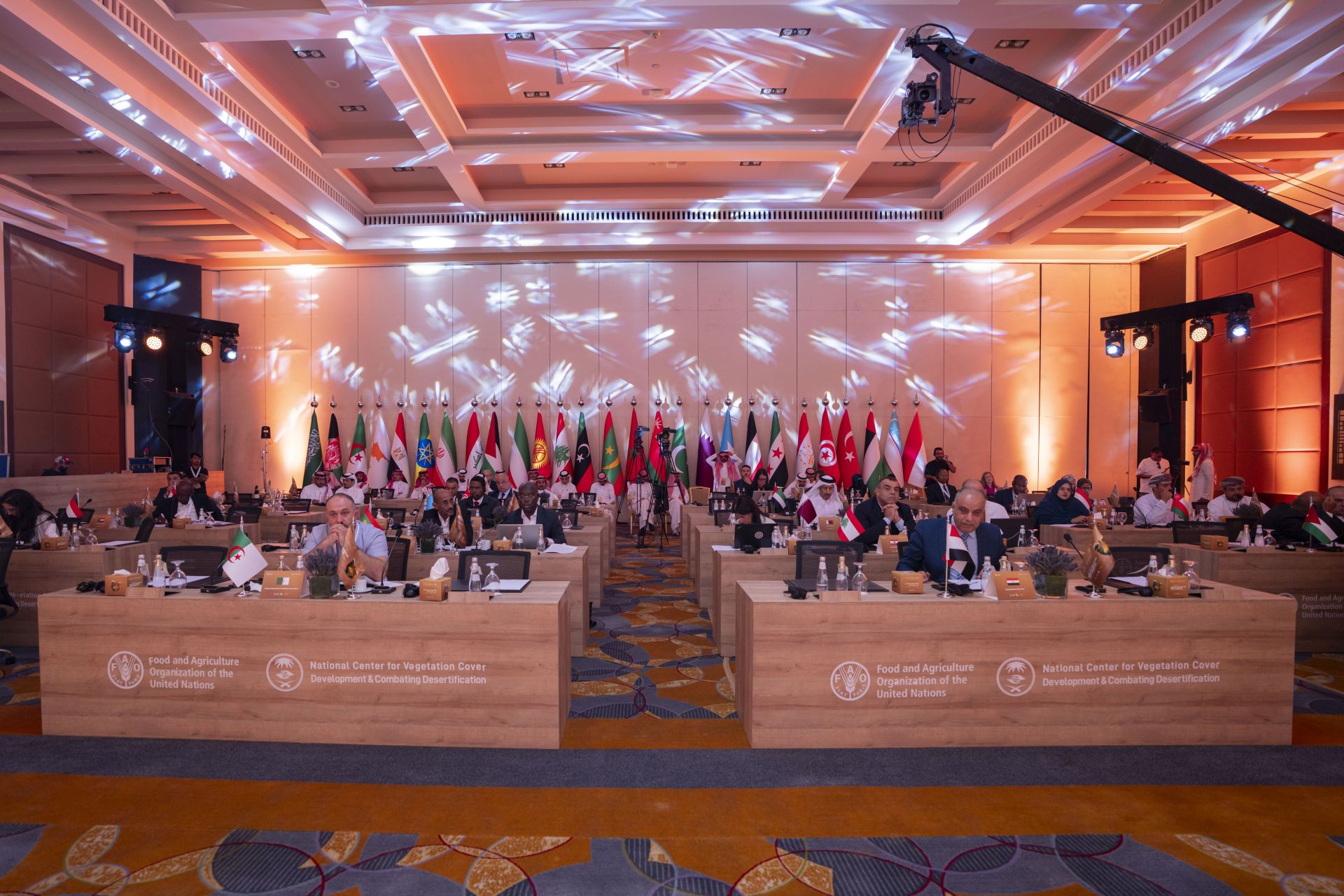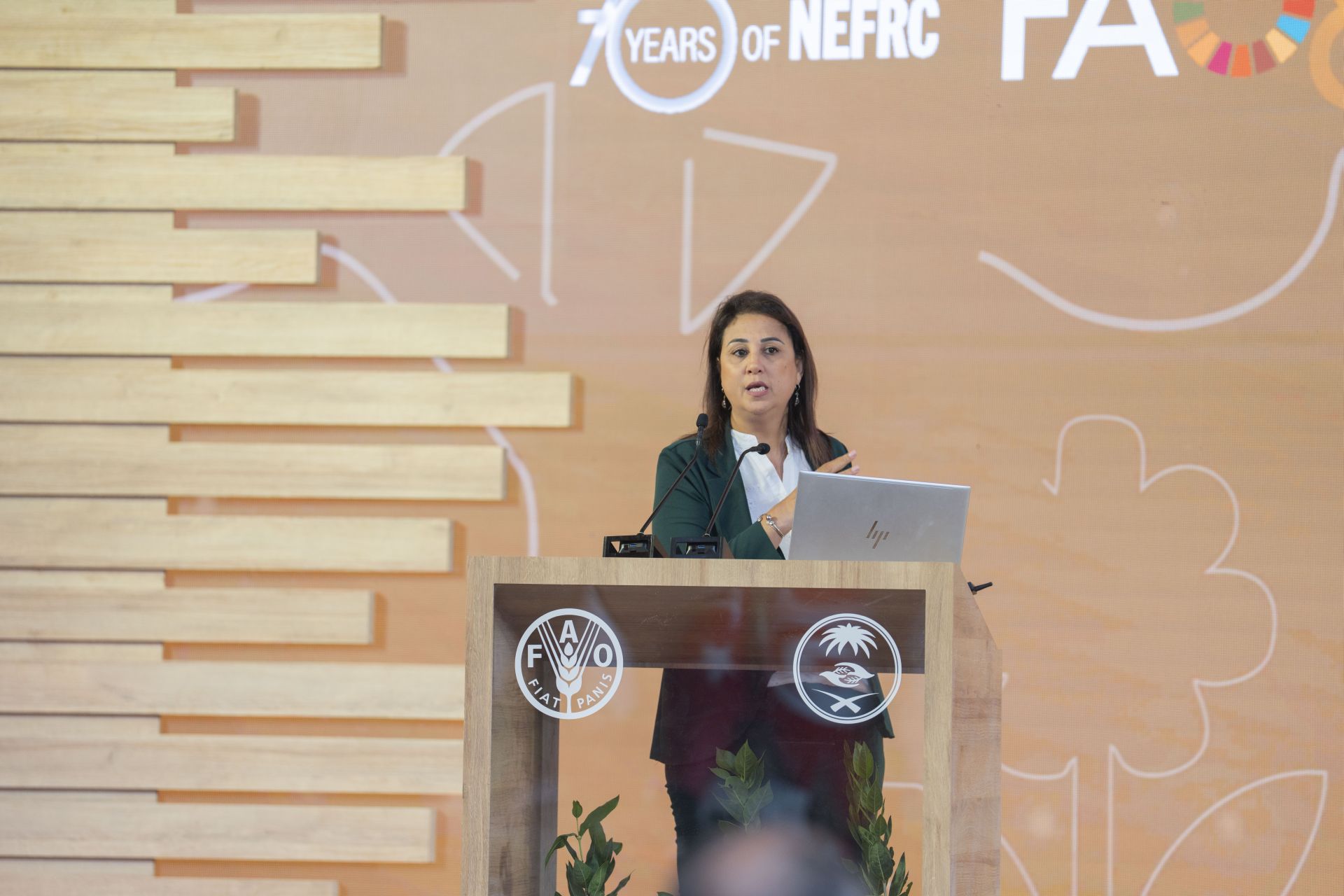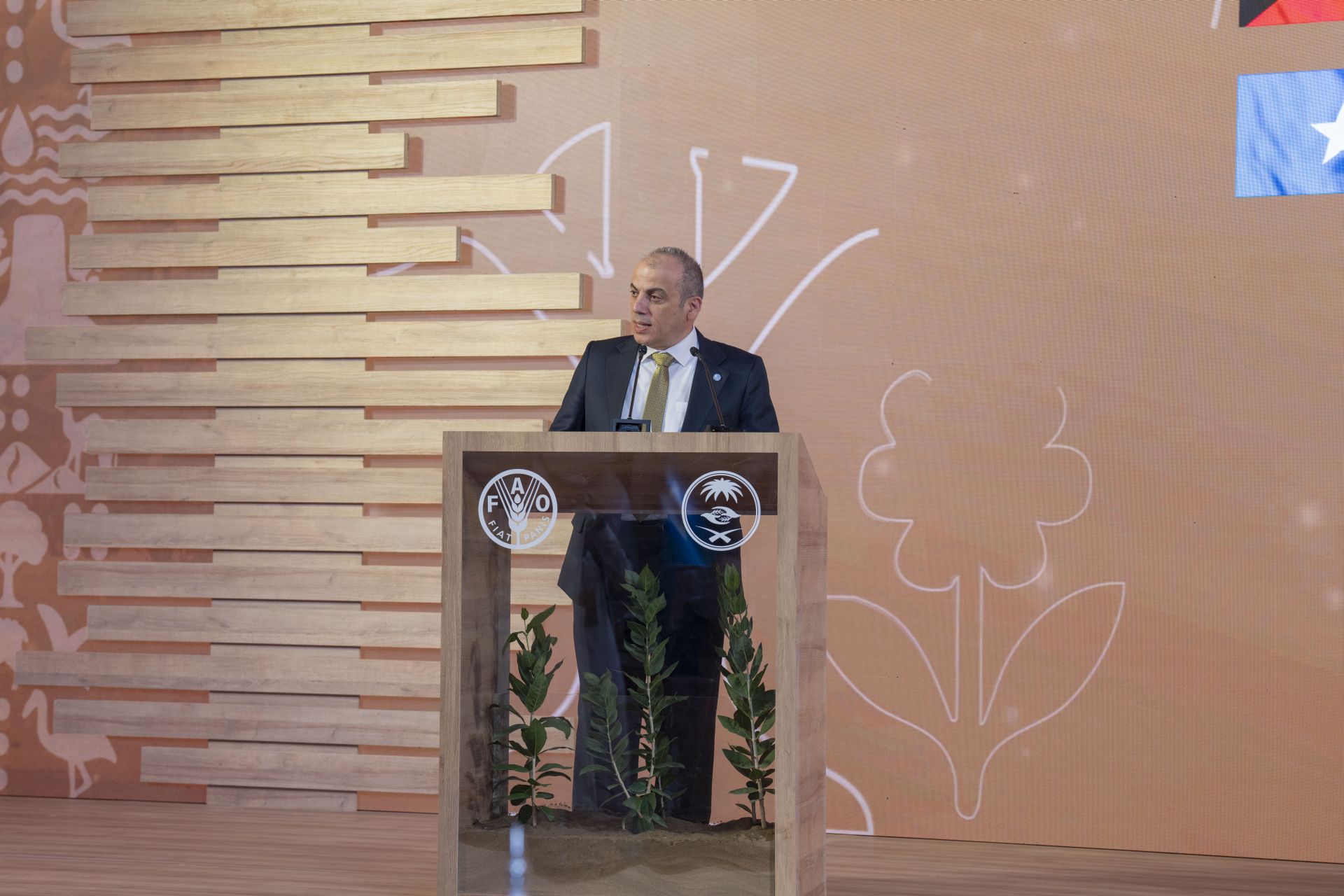FAO’s Near East Forestry and Range Commission Marks 70 Years of Action with Landmark Session in Saudi Arabia
27th Session in Jeddah closes with calls for restoration, investment, and coordinated regional action

The Food and Agriculture Organization of the United Nations (FAO) concluded the Twenty-seventh Session of the Near East Forestry and Range Commission (NEFRC) in Jeddah, hosted by the Kingdom of Saudi Arabia with the support of the National Center for Vegetation Cover Development and Combating Desertification (NCVC).
This milestone gathering coincided with the Sixth Near East Forestry Week, marking 70 years of NEFRC’s service to the region and FAO’s 80th anniversary of global leadership.
At the opening of the session, Dr. Saud Al-Rowaily was elected as the new Chairperson of NEFRC, and a new Steering Committee was selected to guide the Commission’s work for the next two years – reinforcing the commitment of member countries to shared leadership and collaboration.
Over three days, delegates from the member countries reviewed the progress made on the recommendations from the previous NEFRC session, shared best practices, and charted collective responses to pressing challenges including land degradation, drought, forest fires, invasive species, sand and dust storms, and climate-driven pressures on forests and rangelands.
“Forests and rangelands are not only environmental assets, but vital engines for biodiversity, climate resilience and rural prosperity,” said Abdelhakim Elwaer, FAO Assistant Director-General and Regional Representative for the Near East and North Africa at the opening of the session. “The numbers speak for themselves: our region has lost over 12 percent of its forests in just three decades, while rangelands that sustain millions are under mounting pressure from degradation and drought. The NEFRC27 is about turning these alarming trends into action – investing in restoration, harnessing innovation, and strengthening cooperation for a greener, more resilient future.”
Pierre Taty, Chairperson of the 28th Session of FAO’s Committee on Forestry (COFO 28), emphasized the need to “place forests and rangelands at the heart of global climate and food security agendas, recognizing their critical role in sustaining livelihoods and biodiversity.”
Zhimin Wu, Director of FAO’s Forestry Division, noted that “the success of NEFRC over seven decades shows the power of regional cooperation, and as we move forward, innovation and inclusive investment will be key to restoring degraded lands and building climate-resilient landscapes.
Among the key recommendations adopted at NEFRC27 include:
Accelerate land restoration and ecosystem-based solutions through the Regional Investment Framework for Integrated Ecosystem Restoration and Development Solutions that was endorsed by Council of Arab Ministers Responsible for the Environment (CAMRE) and welcomed by NEFRC, in support of the UN Decade on Ecosystem Restoration (2021-2030) and the International Year of Rangelands and Pastoralists 2026.
Strengthen forestry linkages with agriculture and fisheries by scaling up mangrove restoration to protect coasts and livelihoods, and promoting agrosilvopastoral practices to safeguard dryland forests. In parallel, boost FAO’s Green Cities Initiative and large-scale tree-planting programmes to combat sand and dust storms, restore degraded lands, and enhance livelihood well-being and agrifood systems.
FAO to continue providing technical support on AI technologies and tools to improve forest monitoring, assessment, reporting and information systems, in particular with the aim to increase the availability of knowledge and data for scientific and evidence-based policy decisions and actions related to forests, biodiversity and climate change, while further strengthening the reporting systems of developing countries.
Recognize the crucial role of youth in advancing sustainable forestry and rangelands by equipping them with the knowledge, skills, and technologies needed for innovation and digital transformation, and expand Saudi Arabia’s Forest Ambassadors Initiative, launched on NEFRC’s 70th anniversary, to engage young people in restoration, foster cross-regional collaboration, and support youth-led leadership for sustainable land management.
Tackle wildfire threats by advancing the Near East Network on Wildlands Forest Fire (NENFIRE) 5-year roadmap, strengthening knowledge exchange among countries and promoting scalable solutions for integrated fire management, while supporting Saudi Arabia’s initiative with NENFIRE to establish a regional early-warning system that integrates meteorological and vegetation data, and urging stronger national policies and standardized forecasting tools to enhance prevention and rapid response.
Such recommendations and decisions will be disseminated at the 38th Near East Regional Conference the Commission’s and will feed into the 28th Session of FAO’s Committee on Forestry next year.

Fidaa Haddad, NEFRC Secretary and FAO Senior Programme Officer, highlighted the Commission’s enduring legacy: “For seventy years, NEFRC has been the region’s platform for dialogue, knowledge-sharing and collective action to restore our forests and rangelands. This session reaffirmed that investing in healthy ecosystems is investing in food security, livelihoods, and climate resilience. The strong commitments made here in Jeddah reflect a shared determination to mobilize capital for land restoration into tangible results on the ground.”
The session also celebrated the first-ever Youth Day on Forests, which brought together young leaders from across the region to present innovative solutions for greener and more resilient landscapes – underscoring the role of youth as active partners in shaping the future of forests and rangelands.
The Commission formally adopted the Report of the 27th Session of NEFRC, capturing these recommendations and outlining next steps for implementation at national and regional levels.
Looking ahead, the Commission thanked Lebanon for offering to host the 28th Session for the Near East Forestry and Range Commission in 2027.

In his closing remarks, Dr. Nizar Haddad, FAO Programme Director in Saudi Arabia, commended the Kingdom for assuming the new Presidency of NEFRC and reaffirmed the full support of the FAO Saudi Arabia Office in advancing the Commission’s priorities. He highlighted flagship initiatives such as the Forest Ambassador Initiative, which empowers youth and communities to lead restoration and conservation efforts across the region. Dr. Haddad also emphasized FAO’s commitment to tackling wildfire threats, supporting Saudi Arabia’s collaboration with NENFIRE to establish a regional early-warning system that integrates meteorological and vegetation data, while urging stronger national policies and standardized forecasting tools to strengthen prevention, enable rapid response, and reduce wildfire risks.
Marking 70 years of NEFRC service to the region and 80 years of FAO’s global leadership, the 27th Session closed with renewed commitment from member countries to accelerate restoration, scale up innovation, and strengthen cooperation for a greener, more resilient future for generations to come.
Contact
NENA Office Communications (+20) 2 3331 6000 [email protected]
